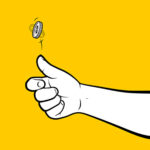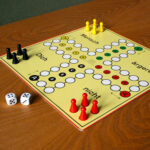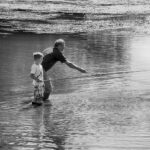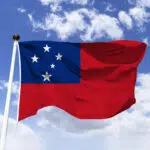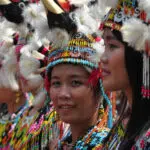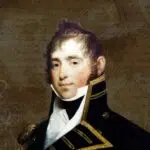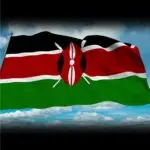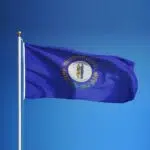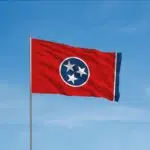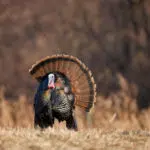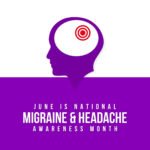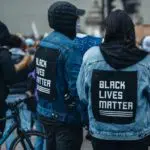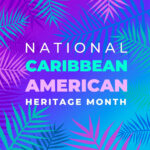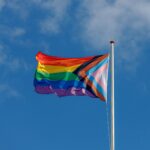National Caribbean American Month is celebrated every June to honor and celebrate America’s rich and diverse culture, which also includes the Caribbean-American population. People from this community have not only evolved the American culture but have also contributed greatly to the development of the nation in areas of science and medicine. There are also numerous Caribbean Americans whose services the U.S is grateful for even today. This month aims to recognize the contributions of all Caribbean-American people and to teach people more about their culture and history. Come celebrate with us!
History of Caribbean-American Heritage Month
A long time ago, many major Caribbean nations were under direct U.S. political control at some point, which made their immigration into America much easier. The earliest wave of Caribbean nationals came to the U.S. in the 19th century and were mostly guest workers from the British West Indies program, who worked in agriculture, as well as political exiles from Cuba. As U.S. companies began recruiting English-speaking workers from former English colonies like Jamaica, migration increased to a great extent. This time also saw many more Caribbean people flee political instability and seek refuge in the U.S. The success of the U.S. as a nation also attracted numerous people from the Caribbean regions to the country. Amongst these were talented craftsmen, poets, doctors, inventors, and other individuals that added greatly to different professional spheres in the nation. Some of the renowned names include Alexander Hamilton — the first Secretary of Treasury and one of the Founding Fathers, Celia Cruz — the lady known for creating astounding salsa music, the famous baseball player Robert Clemente, and several other individuals who managed to leave a mark on U.S. history. The U.S. is also a trading partner for the Caribbean nations. National Caribbean American Month was formed to honor these talented individuals and the positive relations the country has built with the Caribbean. While immigration increased before the 20th century, it has since declined gradually. Most immigrants are from five countries: Cuba, the Dominican Republic, Jamaica, Haiti, and Trinidad and Tobago.The month was founded by Dr. Claire Nelson and was celebrated across the nation for the first time by the Institute of Caribbean Studies in 2000. However, the move to officially declare June as National Caribbean American Month started in 2004 when a legislative bill was passed by Congresswoman Barbara Lee. The resolution was made official in 2006 when President George W. Bush signed the proclamation, naming June as National Caribbean American Month.During this month, knowledge regarding the contributions of the Caribbean is pushed to the forefront, and people are also reminded of the great Caribbean cuisine, their music, and the majestic annual parades of the Caribbean Americans. This is the time of the year when the country is given a blast from the past, topped with a lot of entertainment!
Caribbean-American Heritage Month timeline
Christopher Columbus lands on the Caribbean Islands.
Slavery is abolished in Cuba.
Dominican sugar production climbs due to exports to the U.S.
Voluntary migration to the U.S. from the Caribbean nations begins.
Legendary Jamaican singer Bob Marley appears on the music scene.
The Institute of Caribbean Studies begins efforts to found a Caribbean-American Heritage Month.
The Institute of Caribbean Studies leads celebrational activities in Washington, D.C., building on a group of residents’ efforts to establish Caribbean-American Heritage Month.
Congresswoman Barbara Lee tables a legislative bill in Congress to establish Caribbean-American Heritage Month.
The House of Representatives passes the legislative bill to declare June as Caribbean-American Heritage Month.
President George W. Bush makes the resolution official — June is now Caribbean-American Heritage Month.
Immigrants who have been in the U.S. since the massive earthquake are granted temporary rights to stay in the country — this has since been scrapped.
Caribbean American Heritage Month FAQs
What is Caribbean heritage?
The people born in or inhabitants of the Caribbean region or people of Caribbean descent living outside the Caribbean are those with Caribbean heritage.
What are the Caribbean countries?
The Caribbean countries include Antigua and Barbuda, Bahamas, Barbados, Cuba, Dominica, Dominican Republic, Grenada, Haiti, Saint Kitts and Nevis, Puerto Rico, Jamaica, Saint Lucia, Saint Vincent and the Grenadines, and Trinidad and Tobago, to name a few.
What is the Caribbean known for?
The Caribbean is well-known for its sea life and boasts some of the world’s most popular diving spots. It is also one of the world’s premier yachting locales.
Caribbean-American Heritage Month Activities
-
Learn about our Caribbean friends
Read up on the history of Caribbean immigration to the U.S. and how they have helped drive the American dream and turn it into a reality. You can also visit museums and exhibits to learn more about the history of Caribbean immigration. Turn this visit into a fun little field trip for the family.
-
Cook up a Caribbean storm
Nothing highlights a culture quite like its cuisine. Get inspired and get cooking. Whip up a delicious jerk chicken, Jamaican rum punch, or some coco bread. You can take cooking lessons from your Caribbean friends or, better yet, surprise them with a Caribbean-themed dinner party.
-
Visit the Institute of Caribbean Studies website
Each year for Caribbean-American Heritage Month, the Institute of Caribbean Studies (ICS) works with its partner organizations to devise a varied bunch of activities to suit people of all ages and genders. Visit their website and check out the events happening online or in your community. If you cannot find such events locally, get inspired by their website and come up with your own events for friends and family.
5 Fun Facts About The Caribbean And Caribbean-Americans
-
A significant population
The census from June 2018 reported that there are almost 13.2 million Caribbean-Americans across the U.S.
-
Alexander Hamilton was a Caribbean-American, too!
One of the Founding Fathers of the United States, Alexander Hamilton, was originally from the Caribbean island of Nevis.
-
The rich heritage
The Caribbean is home to 22 UNESCO World Heritage Sites.
-
The vast Caribbean Islands
There are over 2,000 Caribbean islands.
-
Caribbean-Americans prefer some American cities
From 2013–2017, U.S. cities with the most American citizens were the greater New York and Miami metropolitan areas — almost 63% of total Caribbean immigrants lived here.
Why We Love Caribbean-American Heritage Month
-
We get to celebrate our rich history
Even in America’s earliest days, we have seen significant contributions by Caribbean Americans. Their skills, their knowledge, and their innovation have enriched our nation. Caribbean-American Heritage Month is our chance to acknowledge and celebrate this rich heritage and celebrate their spirit.
-
Learn more about Caribbean culture
While learning about their contributions towards America, we simultaneously understand how their culture and origins have influenced our own. We explore their rich history and delve into a world that has advanced our own.
-
We become more accepting
The more we brush up on the globalization trend, the more we learn to be open-minded to new experiences, people, and cultures around us. With an entire month to throw light on the Caribbean-American population, we can’t help but feel we have grown more culturally sensitive than before. We believe this makes us better at accepting diversity, and that will always be a good thing.
Caribbean-American Heritage Month dates
| Year | Date | Day |
|---|---|---|
| 2023 | June 1 | Thursday |
| 2024 | June 1 | Saturday |
| 2025 | June 1 | Sunday |
| 2026 | June 1 | Monday |
| 2027 | June 1 | Tuesday |






